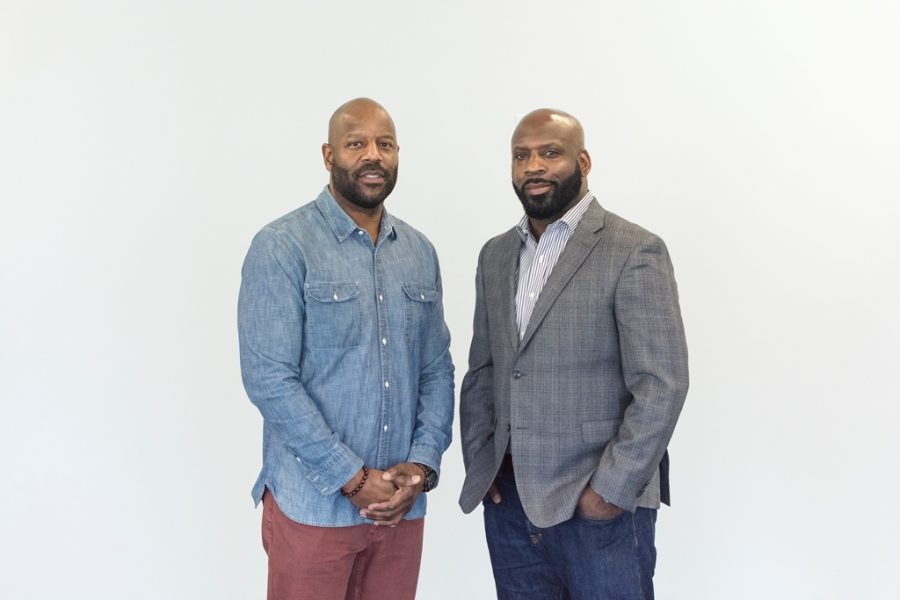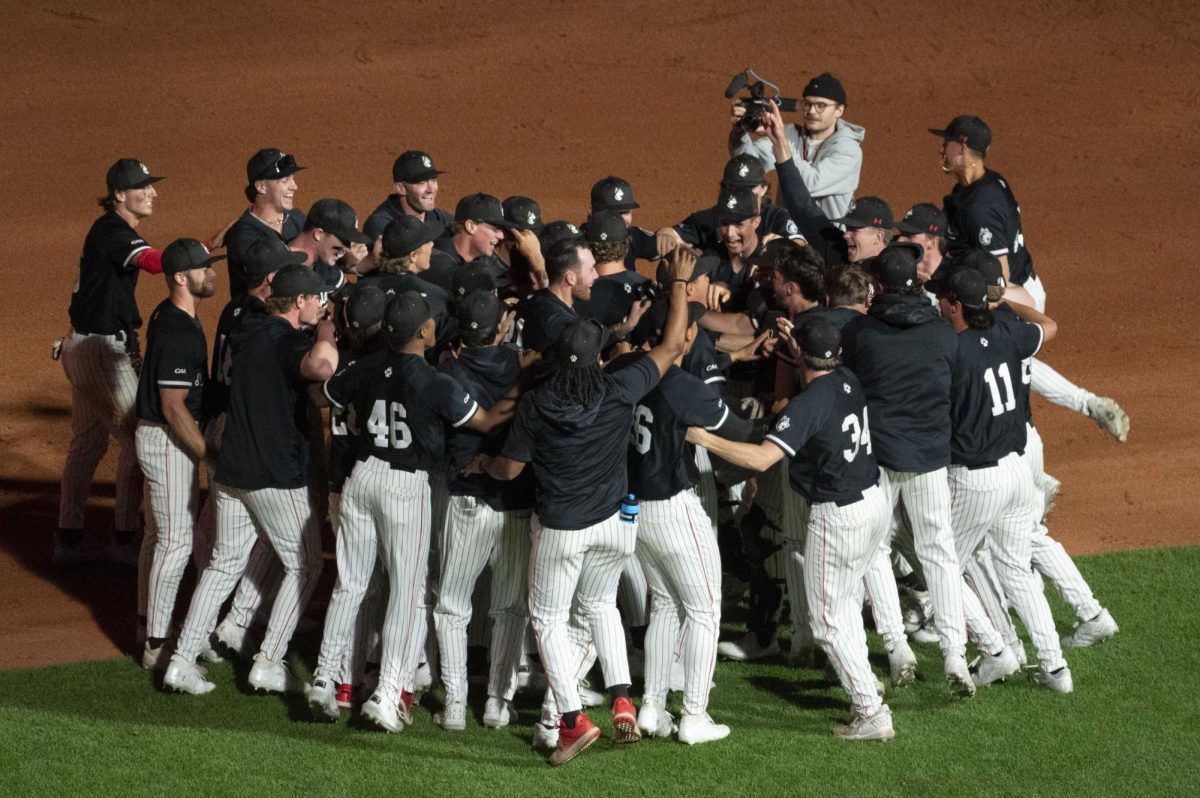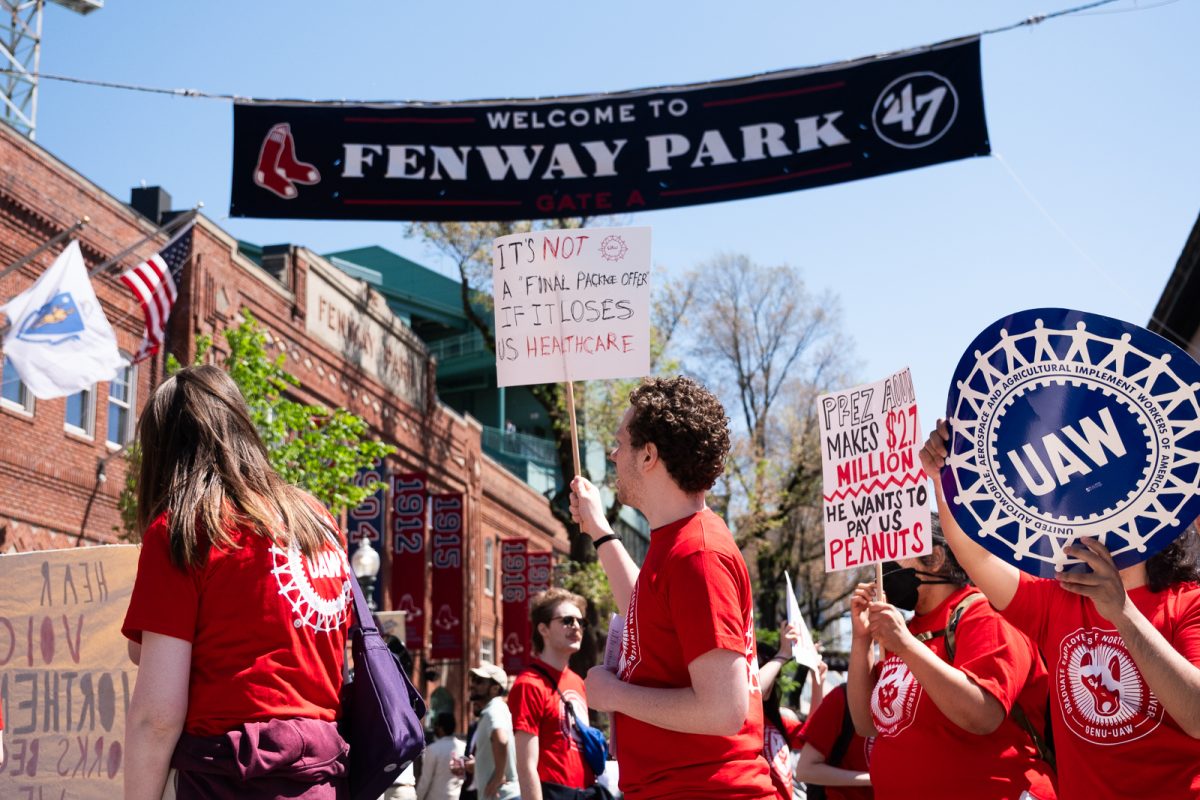Local cannabis dispensary reaps benefits of economic empowerment opportunities
Evans and Hart will open the first recreational marijuana shop and economic empowerment client in Massachusetts.
February 27, 2020
After years of preparation behind the scenes, Pure Oasis, a local cannabis dispensary, is set to open between the end of February and early March. It will not only be the first recreational cannabis dispensary in Boston, but the first cannabis dispensary in Massachusetts to benefit from its economic empowerment program.
Kobie Evans and Kevin Hart, the two co-founders of Pure Oasis, have been working on starting this business since Massachusetts residents voted to legalize recreational marijuana in 2016. Now, the Massachusetts Cannabis Control Control Commission, or CCC, has granted both men a license to open their business.
Even though the two got the green light to open at the beginning of February, the grand opening date has not officially been set.
“We are working on it literally hour-by-hour,” Evans said. “Not getting much sleep, that’s for sure.”
The economic empowerment program is “tasked with supporting, advocating, and facilitating policies that empower all Massachusetts residents,” but with an ordinance signed by Mayor Martin J. Walsh, the state-wide initiative has expanded in Boston to also support individuals looking to open businesses in the cannabis industry.
In order for a business to be eligible for this program, the business needs to employ and help people who are living in the communities that the business will be located in. To qualify for economic empowerment, the communities the business is located in also need to be disproportionately affected by drug criminalization.The new cannabis dispensary, Pure Oasis, falls into this category because it will employ the people from Dorchester in the Grove Hill area.
The Office of Economic Empowerment, or OEE, is also responsible for the finances that they allocate toward each created opportunity.
“The Office of Economic Empowerment within the State Treasury is tasked with financial education and economic mobility programs for individuals across Massachusetts,” wrote Christine Callahan, the business manager at OEE, in an emailed statement.
The dispensary will be located on Blue Hill Avenue in Dorchester in an area known as Grove Hall. The interior of the store is designed so that there is a lobby area for customers to wait indoors.
The waiting room combats the main concern that many East Boston residents expressed last month at a community meeting for the dispensary opening in Maverick Square. Dispensaries like Brookline’s New England Treatment Access have created long lines that stretch out the door and cause people to loiter in the surrounding area.
While Hart and Evans have made significant progress, it was not always smooth sailing to get where they are now.
After facing criticism for the lack of opportunities in the cannabis industry for marginalized communities, Walsh signed an ordinance in November 2019 to make entrepreneurship more accessible for people from all backgrounds.
Steven Hoffman, the chairman of the CCC, acknowledged the success in the cannabis industry this last year, saying in a press conference that he is “pleased with the way things have gone so far,” but that there’s still “a long way to go.”
With the first full year of recreational cannabis sales going down in the books, the numbers have been good. The CCC did not respond to The News’ multiple requests for comments.
Multiple sources report that Massachusetts made around $420 million from recreational marijuana in 2019. With the industry spiking in popularity, the ordinance was signed to prevent restrictions to entering the market and access to the cannabis industry for people of all backgrounds.
“What we don’t want to do is make some of the mistakes of our peer cities across the country,” Walsh said. What Walsh means by this, is he does not want to have one demographic take over the industry. He made this clear in the press conference about signing the ordinance. Walsh wants the cannabis industry to be accessible to all.
The economic empowerment program provides countless opportunities for the qualifying applicants to enhance their businesses and skills. The program hosts training courses in management and basic business practices that are vital to the success of any type of business — particularly those breaking into a burgeoning industry. Some of these basic business practices include accounting, recruitment and sales forecasting.
Along with the economic empowerment application process that Hart and Evans had to pass, Evans said that one of their greatest challenges in the process of opening up shop was trying to obtain a host agreement, which the CCC defines as “a contract negotiated between a municipality and a marijuana establishment that includes all terms necessary for the marijuana establishment to operate in the municipality.”
Kobie said that attaining a host agreement is one of the most difficult barriers to break through when starting a cannabis business.
“It’s creating a restraint,” Evans said.
Evans mentioned that in the future, he and his business partner, Hart, are trying to open another store in Medford but said that they “were unsuccessful with trying to meet with the mayor.” Since they haven’t met with the mayor, they have not received the host agreement for their second store. Despite this, Evans has plans to expand their business to another location in the next few years.
Getting to this point in their business has been a long journey for Evans and Hart, but they maintain that the experience has been rewarding.
Evans is most proud about “the fact that we are new to the industry” and that “we’re from the city.”
Although Evans and Hart are the first two to have a dispensary that will benefit from economic empowerment status, the hope is that their success will help get the ball rolling for other companies.







